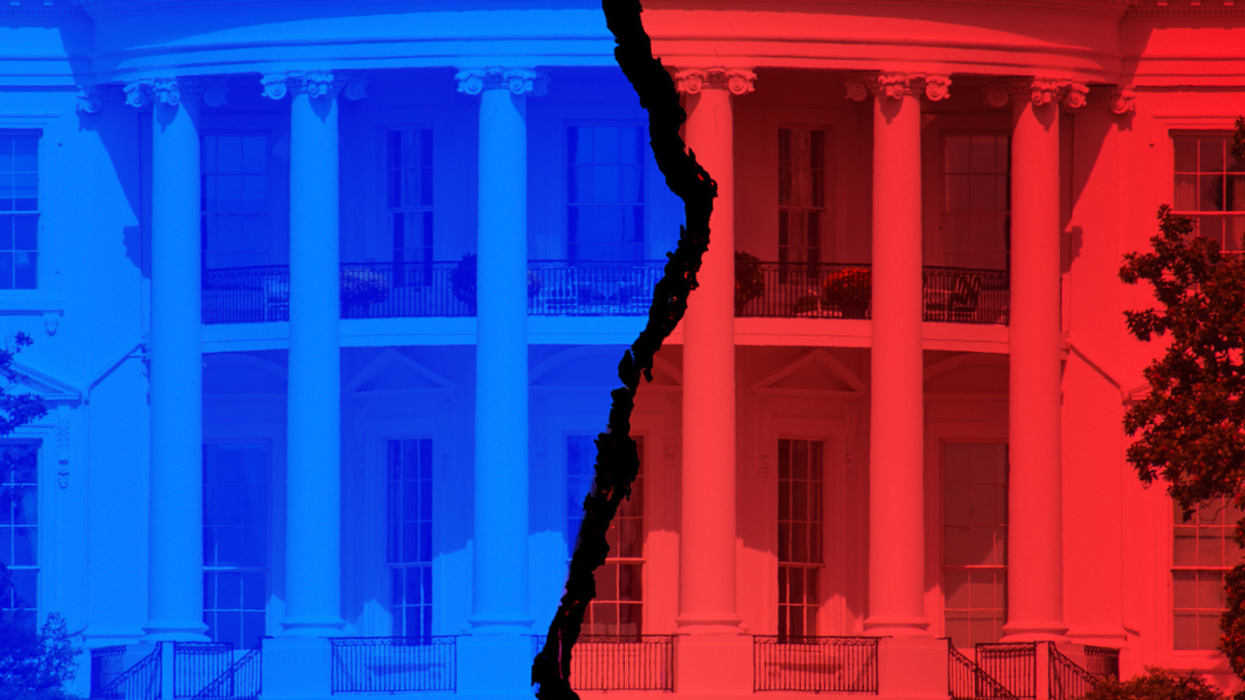Anderson edited Leveraging: A Political, Economic and Societal Framework (Springer, 2014), has taught at five universities and ran for the Democratic nomination for a Maryland congressional seat in 2016.
American political observers have a tendency to divide American politicians into progressives and conservatives, but they are more likely to divide American citizens into progressives, moderates and conservatives. This is so, presumably, because the U.S. House and the U.S. Senate are themselves pretty evenly divided between Democrats and Republicans. And although there are factions within each party, there is still a tendency to leave the moderate category out of the analysis.
Polarization in Washington, therefore, is relatively easy to explain. We have two political parties that are at each other's throats. To the extent that there are factions, the factions tend to be between progressives and extreme progressives and conservatives and extreme conservatives. The Freedom Caucus in the House, for example, is a group of extreme or ultra conservatives. The rest of the House is not made up of many, if any moderates. On the Democratic Side, the Squad led by Rep. Alexandria Ocasio-Cortez, makes up the ultra-progressives, which for some of them means democratic socialists.
In the country, on the other hand, go to Gallup or Pew and you will find a division which is roughly 30% liberal, 30% conservative and 40% either moderate or independent. Not all independents are moderate, but most of the citizens who do not identify with the two major parties are, broadly speaking, sympathetic to moderate or centrist solutions to policy debates. These citizens do not see politics or life in terms of either/or choices; they are more nuanced in their thinking, they favor compromise over conflict, and cooperation over confrontation.
The gap in our country between highly polarized and toxic Washington and a country with three major perspectives is in the Grand Canyon category. The mainstream media preserves the Grand Canyon gap by heightening the contrast between the Democrats and Republicans in Washington and, basically, ignoring the presence of 40% of the citizenry who do not identify themselves as Democrats or Republicans.
Stanford University's Morris Fiorina is the leading American scholar to have argued for decades that the Culture War is a myth. Emory's Alan Abramowitz is one of the leading political scientists to reject Fiorina's thesis and defend the thesis that America is plagued by polarization.
The truth probably lies somewhere in between the Fiorina and Abramowitz points of view. What seems undeniable is that there are tens of millions of Americans, maybe as many as one hundred million, who do not feel comfortable reflecting on our country in terms of a redcoat versus bluecoat mentality. Whether they are centrists, moderates, independents, or even ultra-conservatives or ultra-progressives, they do not pitch their tents with Speaker McCarthy or Senator Schumer. Many of these citizens are not very engaged in politics at all. Indeed, these citizens may have checked out of politics altogether; they may not even vote.
The race for president in both parties needs to address the Grand Canyon gap in our society. One way to close the gap is to have more proposals about policies that would close the gap. Certainly there needs to be discussion about policies that would empower independents, moderates and centrists, including open primaries, ranked-choice voting, and nonpartisan redistricting.
The truth is that campaigns like opinion pages in the print media have limited resources. Although we do need gap closing policies, we actually need fewer arguments about standard public policy issues, whether the issue is guns, climate change, energy, manufacturing, health care, transportation infrastructure, child-care, or the Ukraine-Russia war.
There are related problems to be discussed, including whether Mr. Trump should be disqualified from running for office by section 3 of the 14th Amendment and whether Mr. Biden is too old to be running for office for a second term. These are very important issues, and we should hear from all candidates for office, including Trump and Biden, on these issues.
As important as public policies are, the standard public policies actually get too much attention in our elections. The candidates, moreover, take positions that tend to fit in a progressive or conservative box, and this continues to alienate the potential voters who do not identify as Democrats or Republicans. The time is now to address the Grand Canyon gap in America and decrease attention to standard public policy in election campaigns. Voters want to hear more about closing the Grand Canyon gap, structural changes in the electoral process, what qualities and character traits we expect in our president, and narratives the candidates have about America's past and how it is connected to our present and the future.




















Trump & Hegseth gave Mark Kelly a huge 2028 gift